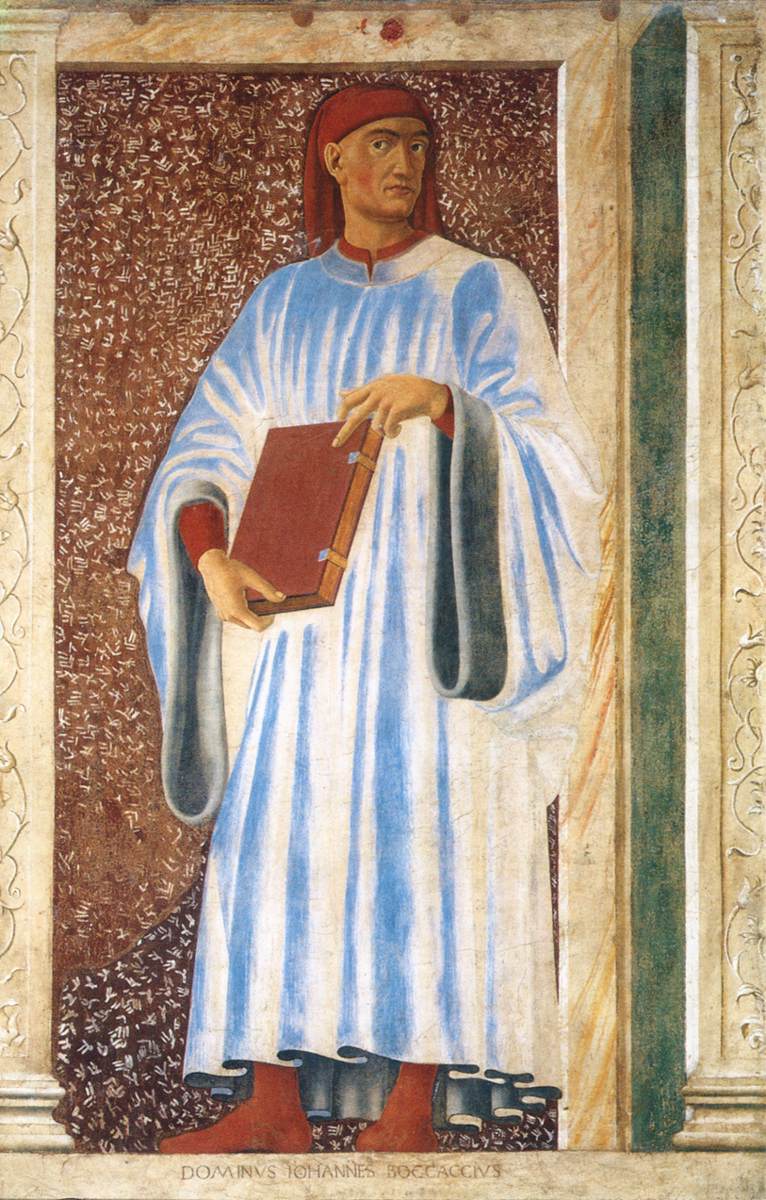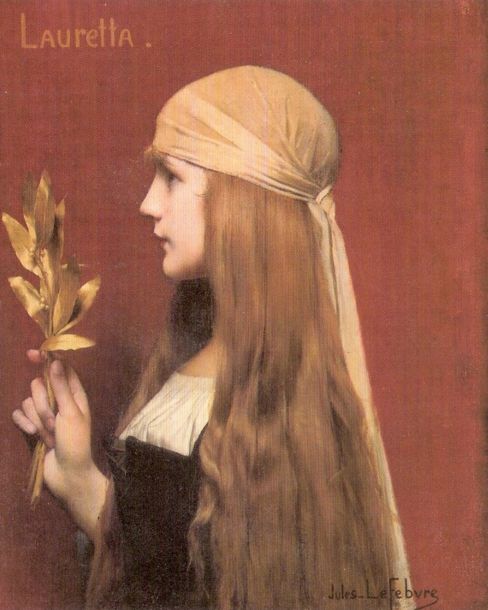|
Ciacco
''Ciacco'' () is a key character in the third circle of hell in the ''Divine Comedy'' by Dante Alighieri that was not yet well defined by historians. This is how he presents himself to Dante when he is in Hell: This way introducing himself allows us to interpret it in various ways, but one of the oldest commentators of the Comedy suggests a derogatory nature of this name: "Ciacco is said to be a pig's name, hence he was called this way for his gluttony." Giovanni Boccaccio makes of Ciacco eighth story of the ninth day of the ''Decameron ''The Decameron'' (; or ''Decamerone'' ), subtitled ''Prince Galehaut'' (Old ) and sometimes nicknamed ''l'Umana commedia'' ("the Human comedy", as it was Boccaccio that dubbed Dante Alighieri's ''Comedy'' "''Divine''"), is a collection of ...'', describing him as "the most gluttonous fellow that ever lived." However, the reference to Ciacco's name is somewhat ambiguous: he is referred to as the man "whom everyone called Ciacco."558 ... [...More Info...] [...Related Items...] OR: [Wikipedia] [Google] [Baidu] |
Third Circle Of Hell
The third circle of hell is depicted in Dante Alighieri's ''Inferno (Dante), Inferno'', the first part of the 14th-century poem ''Divine Comedy''. ''Inferno'' tells the story of Dante's journey through a vision of the Hell in Christianity, Christian hell ordered into nine circles corresponding to classifications of sin; the third circle represents the sin of gluttony, where the souls of the gluttonous are punished in a realm of icy mud. Within the third circle, Dante encounters a man named Ciacco, with whom he discusses the contemporary strife between the Guelphs and Ghibellines in Florence; the circle is also inhabited by the three-headed hound Cerberus, who torments sinners by rending them apart. Rather than focussing on the ''contrapasso'' punishment of the damned, Dante's depiction of the third circle of hell uses the figure of Ciacco—whose historicity is disputed—to explore the politics of Florence, which had previously led to the author being exiled from the city und ... [...More Info...] [...Related Items...] OR: [Wikipedia] [Google] [Baidu] |
Inferno (Dante)
''Inferno'' (; Italian for 'Hell') is the first part of Italian writer Dante Alighieri's 14th-century narrative poem ''The Divine Comedy'', followed by and . The ''Inferno'' describes the journey of a fictionalised version of Dante himself through Christian views on Hell, Hell, guided by the Ancient Rome, ancient Roman poet Virgil. In the poem, Hell is depicted as nine concentric circles of torment located within the Earth; it is the "realm[...] of those who have rejected spiritual values by yielding to bestial appetites or violence, or by perverting their human intellect to fraud or malice against their fellowmen". As an allegory, the ''Divine Comedy'' represents the journey of the soul toward God, with the ''Inferno'' describing the recognition and rejection of sin. Prelude to Hell Canto I The poem begins on the night of Maundy Thursday on March 24 (or April 7), 1300, shortly before the dawn of Good Friday. The narrator, Dante himself, is 35 years old, and thus "midway i ... [...More Info...] [...Related Items...] OR: [Wikipedia] [Google] [Baidu] |
Inferno Canto 6 Lines 49-52
Inferno may refer to: * Hell, an afterlife place of suffering * Conflagration, a large uncontrolled fire Film * ''L'Inferno'', a 1911 Italian film * ''Inferno'' (1953 film), a film noir by Roy Ward Baker * ''Inferno'' (1980 film), an Italian horror film by Dario Argento * ''Inferno'' (1995 film), directed by Peter Keglevic * ''Inferno'' (1997 film), starring Don "The Dragon" Wilson * ''Inferno'' (1998 film), a TV movie directed by Ian Barry * ''Inferno'' (1999 film), starring Jean-Claude Van Damme * ''Inferno'' (1999 Portuguese film), a 1999 Portuguese film directed by Joaquim Leitão * ''Inferno'' (2000 film), or ''Pilgrim'', 2000 film directed by Harley Cokeliss * ''Inferno'' (2001 film), a British "short" movie directed by Paul Kousoulides * ''Inferno'' (2014 film), a Slovenian film, directed by Vinko Möderndorfer * ''Inferno'' (2016 film), American thriller based on Dan Brown's novel of same name Literature * ''Inferno'' (Dante), the first part of Dante Ali ... [...More Info...] [...Related Items...] OR: [Wikipedia] [Google] [Baidu] |
Divine Comedy
The ''Divine Comedy'' (, ) is an Italian narrative poetry, narrative poem by Dante Alighieri, begun and completed around 1321, shortly before the author's death. It is widely considered the pre-eminent work in Italian literature and one of the greatest works of Western literature. The poem's imaginative vision of the afterlife is representative of the medieval philosophy, medieval worldview as it existed in the Western Christianity, Western Church by the 14th century. It helped establish the Tuscan dialect, Tuscan language, in which it is written, as the standardized Italian language. It is divided into three parts: ''Inferno (Dante), Inferno'', ''Purgatorio'', and ''Paradiso (Dante), Paradiso''. The poem explores the condition of the soul following death and portrays a vision of divine justice, in which individuals receive appropriate punishment or reward based on their actions.Vallone, Aldo. "Commedia" (trans. Robin Treasure). In: Lansing (ed.), ''The Dante Encyclopedia'', ... [...More Info...] [...Related Items...] OR: [Wikipedia] [Google] [Baidu] |
Dante Alighieri
Dante Alighieri (; most likely baptized Durante di Alighiero degli Alighieri; – September 14, 1321), widely known mononymously as Dante, was an Italian Italian poetry, poet, writer, and philosopher. His ''Divine Comedy'', originally called (modern Italian: ) and later christened by Giovanni Boccaccio, is widely considered one of the most important poems of the Middle Ages and the greatest literary work in the Italian language. Dante chose to write in the vernacular, specifically, his own Tuscan dialect, at a time when much literature was still written in Latin, which was accessible only to educated readers, and many of his fellow Italian poets wrote in French or Provençal dialect, Provençal. His ' (''On Eloquence in the Vernacular'') was one of the first scholarly defenses of the vernacular. His use of the Florentine dialect for works such as ''La Vita Nuova, The New Life'' (1295) and ''Divine Comedy'' helped establish the modern-day standardized Italian language. His wo ... [...More Info...] [...Related Items...] OR: [Wikipedia] [Google] [Baidu] |
Henry Wadsworth Longfellow
Henry Wadsworth Longfellow (February 27, 1807 – March 24, 1882) was an American poet and educator. His original works include the poems " Paul Revere's Ride", '' The Song of Hiawatha'', and '' Evangeline''. He was the first American to completely translate Dante Alighieri's ''Divine Comedy'' and was one of the fireside poets from New England. Longfellow was born in Portland, District of Maine, Massachusetts (now Portland, Maine). He graduated from Bowdoin College and became a professor there and, later, at Harvard College after studying in Europe. His first major poetry collections were ''Voices of the Night'' (1839) and ''Ballads and Other Poems'' (1841). He retired from teaching in 1854 to focus on his writing, and he lived the remainder of his life in the Revolutionary War headquarters of George Washington in Cambridge, Massachusetts. His first wife, Mary Potter, died in 1835 after a miscarriage. His second wife, Frances Appleton, died in 1861 after sustaining burns ... [...More Info...] [...Related Items...] OR: [Wikipedia] [Google] [Baidu] |
Giovanni Boccaccio
Giovanni Boccaccio ( , ; ; 16 June 1313 – 21 December 1375) was an Italian people, Italian writer, poet, correspondent of Petrarch, and an important Renaissance humanism, Renaissance humanist. Born in the town of Certaldo, he became so well known as a writer that he was sometimes simply known as "the Certaldese" and one of the most important figures in the European literary panorama of the 14th century, fourteenth century. Some scholars (including Vittore Branca) define him as the greatest European prose writer of his time, a versatile writer who amalgamated different literary trends and genres, making them converge in original works, thanks to a creative activity exercised under the banner of experimentalism. His most notable works are ''The Decameron'', a collection of short stories, and ''De Mulieribus Claris, On Famous Women''. ''The Decameron'' became a determining element for the Italian literary tradition, especially after Pietro Bembo elevated the Boccaccian styl ... [...More Info...] [...Related Items...] OR: [Wikipedia] [Google] [Baidu] |
Decameron
''The Decameron'' (; or ''Decamerone'' ), subtitled ''Prince Galehaut'' (Old ) and sometimes nicknamed ''l'Umana commedia'' ("the Human comedy", as it was Boccaccio that dubbed Dante Alighieri's ''Comedy'' "''Divine''"), is a collection of short stories by the 14th-century Italian author Giovanni Boccaccio (1313–1375). The book is structured as a frame story containing 100 tales told by a group of seven young women and three young men; they shelter in a secluded villa just outside Florence in order to escape the Black Death, which was afflicting the city. The epidemic is likely what Boccaccio used for the basis of the book which was thought to be written between 1348–1353. The various tales of love in ''The Decameron'' range from the erotic to the tragic. Tales of wit, practical jokes, and life lessons also contribute to the mosaic. In addition to its literary value and widespread influence (for example on Chaucer's ''Canterbury Tales''), it provides a document of lif ... [...More Info...] [...Related Items...] OR: [Wikipedia] [Google] [Baidu] |
Fictional Ghosts
Fiction is any creative work, chiefly any narrative work, portraying individuals, events, or places that are imaginary or in ways that are imaginary. Fictional portrayals are thus inconsistent with fact, history, or plausibility. In a traditional narrow sense, fiction refers to written narratives in prose often specifically novels, novellas, and short stories. More broadly, however, fiction encompasses imaginary narratives expressed in any medium, including not just writings but also live theatrical performances, films, television programs, radio dramas, comics, role-playing games, and video games. Definition and theory Typically, the fictionality of a work is publicly expressed, so the audience expects a work of fiction to deviate to a greater or lesser degree from the real world, rather than presenting for instance only factually accurate portrayals or characters who are actual people. Because fiction is generally understood as not adhering to the real world, the them ... [...More Info...] [...Related Items...] OR: [Wikipedia] [Google] [Baidu] |
Characters In The Divine Comedy
Character or Characters may refer to: Arts, entertainment, and media Literature * ''Character'' (novel), a 1936 Dutch novel by Ferdinand Bordewijk * ''Characters'' (Theophrastus), a classical Greek set of character sketches attributed to Theophrastus Music * ''Character'' (Dark Tranquillity album), 2005 * ''Character'' (Julia Kent album), 2013 * ''Character'', an album by Rachael Sage, 2020 * ''Characters'' (John Abercrombie album), 1977 * ''Characters'' (Stevie Wonder album), 1987 * "Character", a song by Ryokuoushoku Shakai, 2022 Types of entity * Character (arts), an agent within a work of art, including literature, drama, cinema, opera, etc. ** Character actor, an actor known for playing unusual, eccentric or interesting characters in supporting roles ** Character sketch or character, a literary description of a character type * Game character (other), various types of characters in a video game or role playing game ** Player character, as above but who is co ... [...More Info...] [...Related Items...] OR: [Wikipedia] [Google] [Baidu] |





